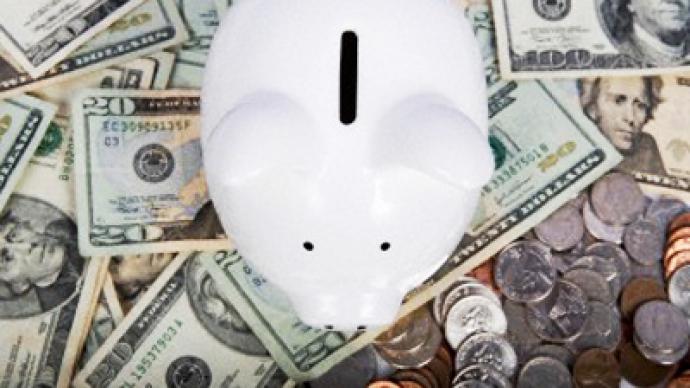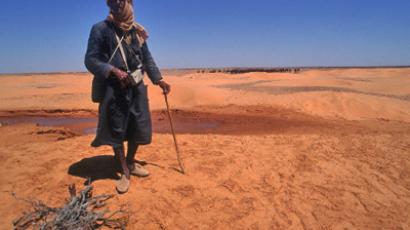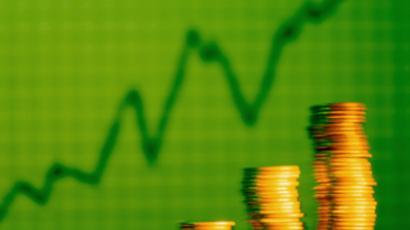Investment climate to come into focus as Russia looks to drive rebound

The government needs to promote Russia’s investment climate in order to generate further economic growth after the rebound of 2010.
The Russian moved into recovery phase through 2010 with key economic indicators rising. Igor Nikolaev, Head of strategic analysis at FBK, says this created a comfortable environment.“The Russian economy has absolutely rebounded which created a comfortable field for further improvements in the economy from the government side. Of course, a few changes have spurred investors’ appetites for Russian industries such as Auto construction, Energy sector which remains most attractive for foreign investors given that Russia has a bulk of resources and this industry is the most developed.”Despite this he believes the weakness in Russia’s investment climate is still reflected by a capital outflow which he says is too high.“The investment climate in Russia has not shown any positive signs for an upward trend. The capital outflow accelerated in the 2H 2010 despite year on year despite positive dynamics showing a 30% decrease of capital outflow from $50 million to $30 million.”Dmitry Vinogradov Head of Strategy and Banking, at UBS also saw the economic rebound flatten out before picking up in the last quarter, delivering market gains.“The Russian market resumed its catch-up game closer to the end of the year on the back of the sentiment improvement in response to the pick-up in global risk appetite and strength in commodity prices. This helped the market deliver 13.5% returns so far in the last quarter, which put the current RTS levels 18.5% higher compared to the start of the year.”But Nikolaev says the rebound has been weaker than expected and believes that economic headwinds will pick up heading into 2011 and he is warning about the possibility of stagnation.“I doubt latest officials forecast for GDP growth of 4.5%. I doubt GDP exceeds 4.2% in a wake of government bans and tough tax regime on business. Above all the economy will not be supported by the effect of low base and pent-up demand. As I have said business tax increase from 24% to 34% in 2011 will have a negative impact on investments appetites and industry growth. My forecast for 2011 1.5% economic growth- that is resembling a stagnation by all means.”To ward off the possibility of stagnation Igor Kostin, Chairman of Finpotrebsouz, saysthat further structural reforms are essential.“To ensure sustainable economic growth in the medium term, in a still uncertain global recovery environment, Russia needs to improve the investment climate, attract FDI and raise productivity. The privatization program and WTO accession could act as catalysts for the creation of a more investor friendly climate.”Kostin notes that increased risk aversion has put pressure on Russian leadership to re-focus on domestic drivers in order to accelerate economic growth rates and that the investment climate needs to be improve proceed. “Russia should prioritize the reinvigoration of structural reforms in order to improve the investment climate and create the pre-requisites for acceleration of FDI flows; Increase the scope for productivity gains; improve economic efficiency.”Nikolaev says that despite his less positive outlook there are factors which could push economic growth if they are capitalized upon, but he notes the factoras deterring international investment into Russia need to be addressed.“Rouble strengthening and consumer demand and spending growth have a positive influence on investors’ decision. WTO membership is definitely a positive move which can help to drive investors’ appetites. Russian banking system is also enough developed and good co operational activity with international banks is developed. However, the capital outflow overcomes the inflow and investors are very attentive to this fact. The general profile of investor in Russia will remain the same. Germany, Cyprus and the Netherlands will accumulate the biggest contribution. Despite expanded and improved financial and trade turnover between China and Russia we will not see China investing in Russia Economy.” Vinogradov is also seeing positive drivers for the coming year.“Easy monetary policies in advanced economies should lead to greater risk appetite and stimulate capital inflows into GEM. The low interest rate environment and faster EM growth should support commodity prices. We believe that Russia – cheap, under-owned and with exposure to commodity markets – is well placed in this environment.”Vinogradov says that a range of measures need to be implemented in order to encourage investment with further legal reform essential.“Russia needs to improve its performance in areas like transparency, corruption, efficiency of public spending and spending of government controlled companies. Regulation also needs to be streamlined and practices need to be made consistent. Among other measures, Russia needs to reduce barriers for SMEs which should be a key source of diversification. Specific measures that should be put in place include limiting the government involvement in pricing and broader economic decision-making for which administrative reform efforts should be re-ignited. The protection of property rights is another priority. The key initiative that should facilitate the implementation of this objective is legal reform.”














